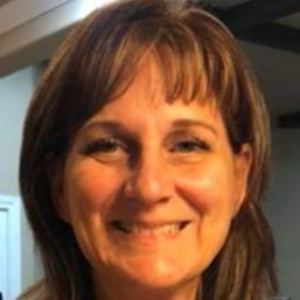Title : Beautifully broken: Using peer support as emotional first aid for healthcare providers
Abstract:
As health care becomes more complex and patient acuity increases, unforeseen and adverse outcomes become more frequent, placing a tremendous burden on healthcare providers (HCPs). They are at the forefront of experiencing the detrimental effects of adverse patient outcomes, and the COVID pandemic has only served to both highlight and signicantly increase those negative effects such as burnout, anxiety, compassion fatigue, and PTSD. In 2016, Johns Hopkins declared that medical errors were the third leading cause of death in the US. If each medical error involves one or more HCPs, almost half of clinicians could be negatively impacted by an adverse event (AE) in their career. Dr. Albert Wu coined the term “second victim” to describe the trauma experienced by HCPs when an unanticipated event occurs, which can result in psychological and physical distress.
The definition soon expanded to include those involved in medical errors and other unanticipated events involving patient injury leading to psychological trauma, feelings of personal responsibility, or questioning of their clinical abilities. The extent of trauma depends on the degree of patient harm, type of event, age of the patient, and investigative process. Although each HCP may experience an unanticipated event, the people involved in or witnessing adverse events can experience disruption in their professional and personal lives. This suffering can affect their quality of life, work performance, and how they provide care to other patients, placing subsequent patients at risk for increased medical errors as HCPs become less confident in their ability to provide care.
There are few people HCPs can turn to for emotional or spiritual support after an adverse patient event. Reasons include patient privacy concerns, the stigma of weakness associated with seeking help, and many laypeople do not understand the experience. When coping with a traumatic AE, most instinctively turn to their peers who genuinely understand. This confidante could be a nurse or other HCP they know and trust. This sharing of events with their peers allows healing to begin. To this end, receiving just-in-time support from a peer knowledgeable regarding the second victim phenomenon and emotional support would be beneficial.
After two decades of experiencing adverse patient events and attempting to cope with the detrimental effects caused to HCPs, it became a mission and passion to help clinicians thrive instead of just survive. The intent is to help clinicians overcome adverse events, become resilient, and flourish in their professions.
Providing real-time emotional support following an adverse event has been associated with enhanced emotional wellbeing and recovery of second victims. Unfortunately, other than employee assistance programs and chaplain referrals, many HCPs do not have access to real-time emotional support after an unanticipated event. This evidence-based project aimed to determine if a peer support program would enhance the nurses’ perceived emotional support following unexpected adverse events. Based on the forYOU Program designed by Sue Scott at the University of Missouri Health Care System (MUHC), this program trained peers to offer real-time care and support to other clinicians coping with such events.
Audience Take Away Notes:
- Understand the Second Victim phenomenon and the detrimental effects of adverse patient events for HCPs
- Review statistic/data regarding detrimental effects of AE on HCPs
- Describe stages of recovery/trajectory of Second Victims
- Evaluate the positive impact of peer support on HCPs health and well-being
- Describe process of implanting Peer Support Program in a Hospital System



